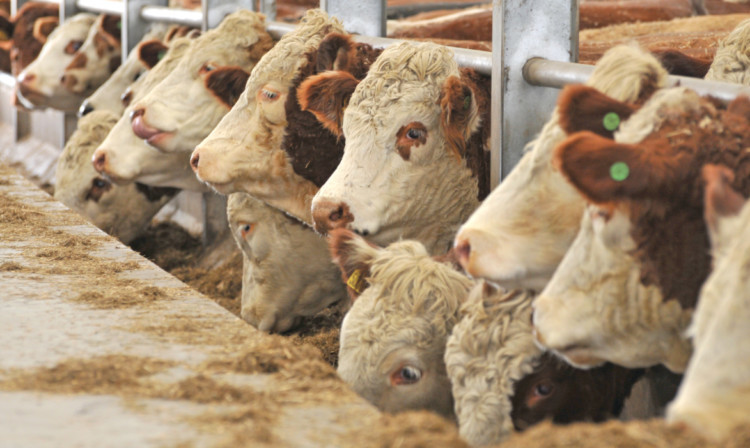Store cattle prices remain buoyant but there is real concern among finishers about the continuing downward pressure on prices.
It is a trend that threatens to reduce margins to perilous levels, with a number of issues deemed as being responsible.
The concentration of prime cattle coming forward at this time of year is one. The national herd is now predominantly spring calving, meaning a bulge in supplies as the cattle reach either the 12- to 14-month or the more traditional 20- to 24-month finishing phase at the same time.
It is also reported not enough carcases meet the correct weight and specification.
At the same time retail demand is changing and it is difficult to maintain the all-important Scotch Beef premium.
The situation is considered serious enough for NFU Scotland to have announced it is to work with the processors’ organisation, the Scottish Association of Meat Wholesalers (SAMW), on a strategy to address the pressure on price and marketing seen during the spring months.
NFUS president Nigel Miller said: “There is a lot of work going on right now to strike a deal on CAP implementation that ensures vulnerable sectors, like beef, are sheltered from business-changing cuts in support.
“While our beef sector has enjoyed a buoyant period in recent times, we need the market to be sending out the right signals so that any confidence built up doesn’t quickly evaporate. Prices go up and down for many reasons, and we need to better understand what is behind this.
“There are underlying issues that we need to examine and address so that we can manage production cycles and align them with demand. The role of our wholesalers in mapping out what type of animals are required and when they want them will bring some focus to this.
“While we need to discuss with the wholesalers how we manage the coming few weeks, we also need to send out clear messages at an early stage on the specification and weight of cattle, the potential premiums attached to meeting specification, and the penalties if cattle have outgrown current retailer requirements.”
Livestock committee chairman Charlie Adam, from Braeside, Alford, said: “It would appear that the shift to spring calving, more cattle being finished intensively at 12 to 14 months of age, and the traditional supply of finished cattle at this time of year are putting pressure on the system.
“Forward planning between producers and processors can help both parties make sure we meet the needs of the market.”
Alan McNaughton, site manager at McIntosh Donald and SAMW president, said: “We welcome any involvement with NFUS which will help to correct negative market factors such as the delivery to our members of overweight or over fat cattle.
“Certainly in relation to the year-round sourcing of stock, there is no room for cattle to be lost to the premium scotch industry purely due to them not being produced to the required standards.
“The reality of the current situation, however, is that the industry across the whole of the UK and Ireland is experiencing a shift in the supply/demand balance which has resulted in a lowering of prices in all countries.
“The reduction which had applied in Scotland to date, in fact, is not as much as has been seen in other parts of the UK and Ireland a reality which still leaves many of our members at a trading disadvantage within the UK market.
“An additional issue which cannot be ignored is that beef consumption continues to run at significantly lower levels than in the past, currently being some 7% down on this time last year.
“These are whole chain challenges and issues which clearly need to be addressed now and in the future.
“Similar joint action would also have been beneficial, of course, when cattle prices rose to more than 420p/kg last year, an experience which took the processing sector to the very brink of commercial ‘meltdown’ and put the future of the Scottish meat industry at severe risk,” he added.
“The fact that even at today’s prices, scotch meat is still the most expensive in Europe means that many member companies are still doing no more than marking time in their slow recovery from last year’s loss-making trade.
“We obviously welcome the invitation to meet NFUS to discuss these issues, but have to emphasise at this stage that such a meeting will need to address all the issues faced by the industry over the last 12 months in Scotland, UK, Ireland and Europe as a whole.”
